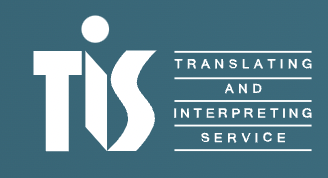The topics below are from our monthly Plan Management Update. They are written by Diana Qian, Plan Management team leader at futures in sight. If you want to subscribe to the monthly Plan Management Update... please click here.
After significant lobbying by advocates for people from culturally and linguistically diverse communities, NDIA made a deal with TIS (Translation and Interpreting Service) National that people can access unlimited free interpreting service for:
- NDIS access enquiry and requests
- NDIS planning meetings
- NDIS appeals processes
- Plan Review meetings
- Plan implementation
- Communicating with Support Coordinator
You have a choice of phone or onsite (face to face) interpreting. Either option is free to you and the provider. Make sure you ask for an interpreter in person for important meetings such as plan review or OT assessment. Providers do need to register with TIS National to get a special code to use when booking interpreters for NDIS purposes.
This free interpreting service can only be used by NDIA registered providers. This means you can’t have free interpreting if you want to go with an unregistered provider.
To access TIS call 13 14 50 and ask tehm call the provider you want to speak with.
If you haven’t yet come across manual claims, you’re doing well 😊
As a plan manager, manual claims are something I really dread. When we process invoices, we make what’s called a bulk claim which means claiming lots of invoices in one hit. This is an efficient way of claiming funds and allows us to pay suppliers quicker. However, this method doesn’t work if the participant has run out of money in their plan. This can happen from time to time for various reasons. For example, someone’s needs have increased but their plan review is still stuck in a queue waiting.
When invoices are rejected from a bulk claim because of insufficient funds, I resort to making a manual claim. This means sending the invoices to the payment team at NDIA via the NDIS portal and asking them to consider payment. This is a slow and painful process. At the moment the waiting time is nearly 8 weeks. If there’re any issue with the invoice, the payment team will send it back to me to get it fixed. Then I will have to lodge a new claim and the waiting game starts again.
Such a long wait and uncertainty is stressful for participants and suppliers alike. This is particularly difficult for small suppliers or sole traders as they’ve done the work but can’t get paid.
Manual claims are considered by the NDIA payment team on a case-by-case basis. Sometimes, a manual claim will get approved, and money made available to pay the invoices.
However, claims can also get rejected with a standard response that it’s the participant’s responsibility to not overspend. That means it’s the end of road for me as the plan manager, and it’s up to the participant and supplier to work out what to do with the outstanding invoices.
As there’s no guarantee that a manual claim will be successful, it’s really important that people watch their budget. Please talk to your support coordinator or plan manager if you need help to review your budget or think that you’re running low on funds.
Check your monthly reports and make sure the billing is up to date.
Spending more than what you get funded for is a serious risk to you because you might end up paying supports out of your own pocket.
As a plan manager, manual claims are something I really dread. When we process invoices, we make what’s called a bulk claim which means claiming lots of invoices in one hit. This is an efficient way of claiming funds and allows us to pay suppliers quicker. However, this method doesn’t work if the participant has run out of money in their plan. This can happen from time to time for various reasons. For example, someone’s needs have increased but their plan review is still stuck in a queue waiting.
When invoices are rejected from a bulk claim because of insufficient funds, I resort to making a manual claim. This means sending the invoices to the payment team at NDIA via the NDIS portal and asking them to consider payment. This is a slow and painful process. At the moment the waiting time is nearly 8 weeks. If there’re any issue with the invoice, the payment team will send it back to me to get it fixed. Then I will have to lodge a new claim and the waiting game starts again.
Such a long wait and uncertainty is stressful for participants and suppliers alike. This is particularly difficult for small suppliers or sole traders as they’ve done the work but can’t get paid.
Manual claims are considered by the NDIA payment team on a case-by-case basis. Sometimes, a manual claim will get approved, and money made available to pay the invoices.
However, claims can also get rejected with a standard response that it’s the participant’s responsibility to not overspend. That means it’s the end of road for me as the plan manager, and it’s up to the participant and supplier to work out what to do with the outstanding invoices.
As there’s no guarantee that a manual claim will be successful, it’s really important that people watch their budget. Please talk to your support coordinator or plan manager if you need help to review your budget or think that you’re running low on funds.
Check your monthly reports and make sure the billing is up to date.
Spending more than what you get funded for is a serious risk to you because you might end up paying supports out of your own pocket.
The two things I hate paying are fines and cancellation charges (I usually like to get something for my money). However, they are the necessary evils we have to live with. If we cancel an appointment with a provider at short notice, it would be hard for them to find alternative work. Their livelihood suffers as a result, particularly for sole traders, and that’s not right either.
NDIA Price Guide allows for providers to claim 100% of the agreement fee if:
Without sounding like a Bing Lee ad, everything is negotiable. Some providers charge cancellations as per the price guide, but some choose not to. Some might charge 50% or require one days’ notice instead of two.
It’s always a good idea to talk about cancellation charges with your provider upfront and reach an agreement that’s fair for both parties. We usually recommend people to have a service agreement with their providers and cancellations should be included in the terms and conditions.
If your provider doesn’t charge for cancellations, you’re doing better than lots of others!
NDIA Price Guide allows for providers to claim 100% of the agreement fee if:
- the participant didn’t show up to a scheduled support within a reasonable time; or
- has given less than two business days’ notice
Without sounding like a Bing Lee ad, everything is negotiable. Some providers charge cancellations as per the price guide, but some choose not to. Some might charge 50% or require one days’ notice instead of two.
It’s always a good idea to talk about cancellation charges with your provider upfront and reach an agreement that’s fair for both parties. We usually recommend people to have a service agreement with their providers and cancellations should be included in the terms and conditions.
If your provider doesn’t charge for cancellations, you’re doing better than lots of others!
For new plans approved after 1 March 2022, meal preparation and delivery can be claimed from core supports if:
For existing plans (those approved prior to 1 March 2022) the above guidelines do not apply. Meal prep and delivery remains a quote required item and can only be claimed from existing plans if:
- the plan says core supports can be used flexibly - there is usually some words such as ‘funding may be used flexibly …’ in the core supports box of the plan. It doesn’t have to be a stated item, and
- a participant cannot prepare meals because of their disability and there is no one else to do this for them (ie. family, support worker), and
- a participant is unable to organise/plan meals because of their disability.
For existing plans (those approved prior to 1 March 2022) the above guidelines do not apply. Meal prep and delivery remains a quote required item and can only be claimed from existing plans if:
- Meal prep and delivery is listed as a stated item in core supports
- A quote has been sent to and has been approved by the NDIA
Sometimes it can come as a surprise when an invoice arrives in your inbox for two-hour support that you’ve used. You thought at $50 per hour the amount you have to pay would be $100. However, there are additional travel fees a provider can charge which can, in some cases, double the amount on the invoice.
NDIA allows providers to charge for their travel time to get to you and return to their workplace. This is capped at 30 minutes per trip. So the worker can add up to an hour of their travel time to the bill.
In addition to their time, they can charge the cost of their travel. So for example, if they took the train, they can charge their return train fare. If they used their own car, they can charge a fee per kilometre to cover petrol and the running cost of the car. This is sometimes called mileage. They can also pass the cost of parking or toll fees to you.
If the support they provide involves transporting you to where you want to go, they can charge the mileage for this as well.
For people who have their plans managed by NDIA (agency managed) or a plan manager (such as futures in sight), there is a price guide that sets out the maximum amount that can be claimed for a support. However, there is no limit for how much a provider can charge for mileage. We see a range of charges. Some services charge 78cents per kilometre and some charge $2 per kilometre.
It’s worth your while checking out how much providers charge for mileage because it can cost you more than the support time. Make sure you ask the provider for a schedule of fees and charges. And as with every support you use, you can always negotiate for a lower price for mileage to suit you and your budget.
To give you an idea of what is reasonable, in the Award that most of the support workers are paid under, mileage is set at 80 cents per kilometre. NDIA thinks 85 cents per kilometre is okay for a car that is not modified for accessibility.
To avoid surprises, and the risk of additional charges eating away your funds, always get as much information as you need from providers and prepare to negotiate a better deal.
NDIA allows providers to charge for their travel time to get to you and return to their workplace. This is capped at 30 minutes per trip. So the worker can add up to an hour of their travel time to the bill.
In addition to their time, they can charge the cost of their travel. So for example, if they took the train, they can charge their return train fare. If they used their own car, they can charge a fee per kilometre to cover petrol and the running cost of the car. This is sometimes called mileage. They can also pass the cost of parking or toll fees to you.
If the support they provide involves transporting you to where you want to go, they can charge the mileage for this as well.
For people who have their plans managed by NDIA (agency managed) or a plan manager (such as futures in sight), there is a price guide that sets out the maximum amount that can be claimed for a support. However, there is no limit for how much a provider can charge for mileage. We see a range of charges. Some services charge 78cents per kilometre and some charge $2 per kilometre.
It’s worth your while checking out how much providers charge for mileage because it can cost you more than the support time. Make sure you ask the provider for a schedule of fees and charges. And as with every support you use, you can always negotiate for a lower price for mileage to suit you and your budget.
To give you an idea of what is reasonable, in the Award that most of the support workers are paid under, mileage is set at 80 cents per kilometre. NDIA thinks 85 cents per kilometre is okay for a car that is not modified for accessibility.
To avoid surprises, and the risk of additional charges eating away your funds, always get as much information as you need from providers and prepare to negotiate a better deal.







